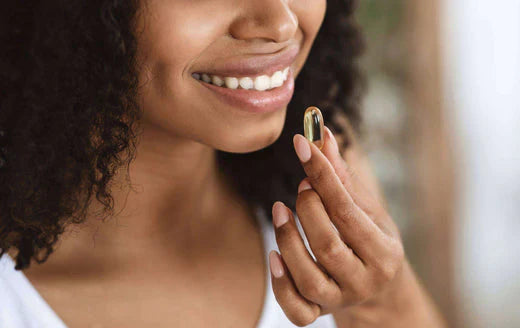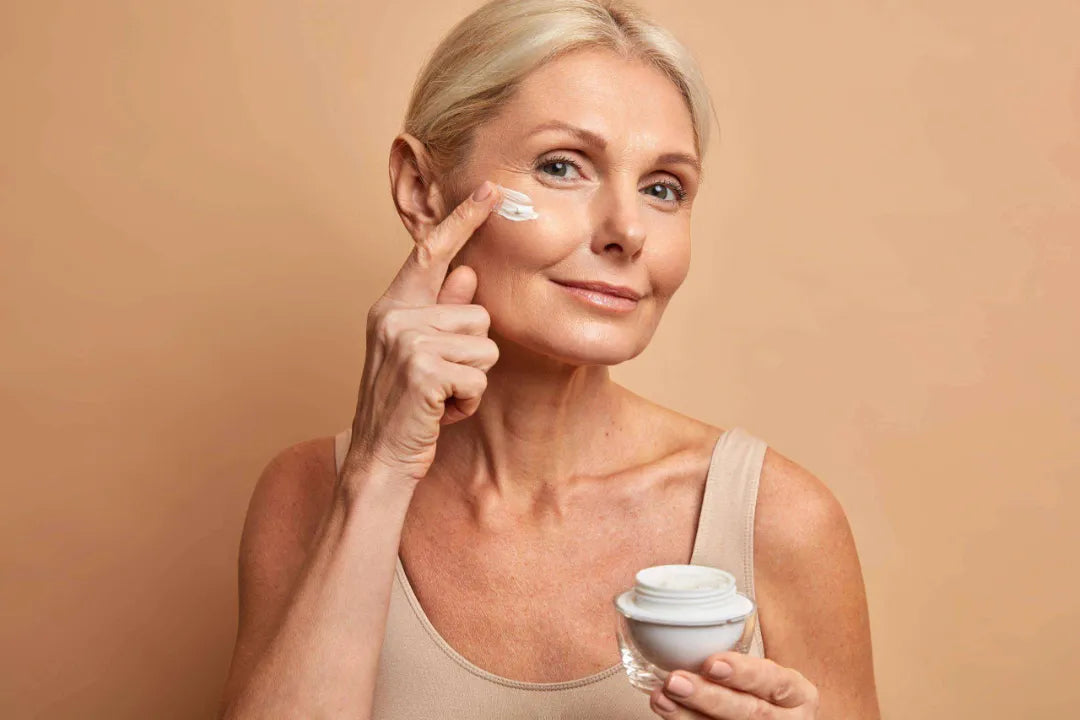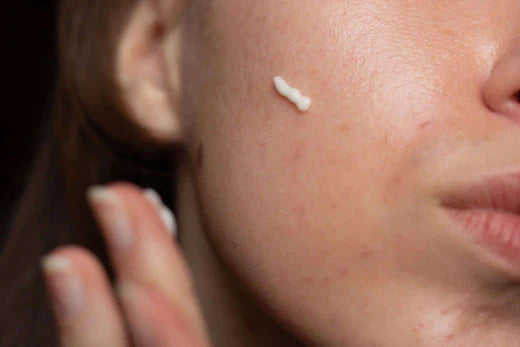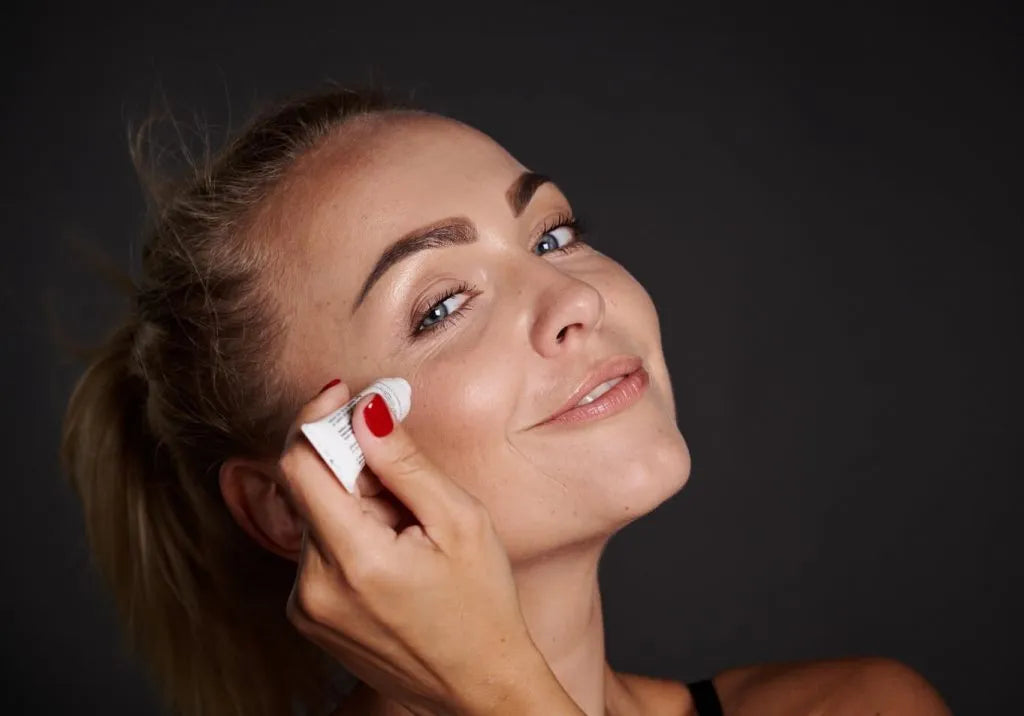At the onset of the menopause, many women start taking vitamins for skin because it is affected. Why? During menopause, the body undergoes a series of hormonal changes that are reflected in the skin. It begins to lose collagen and produce oestrogen, which starts to cause changes in the skin. Specifically, regarding the loss of elasticity and hydration (Henríquez, 2020; NIH, 2017; Johnsons, 2021). Therefore, it is very important that during menopause you reinforce your skin care. In addition to using very nourishing and firming products such as vitamins (Henríquez, 2020). Below, we tell you which vitamins for skin you cannot stop taking during menopause to take good care of yourself.
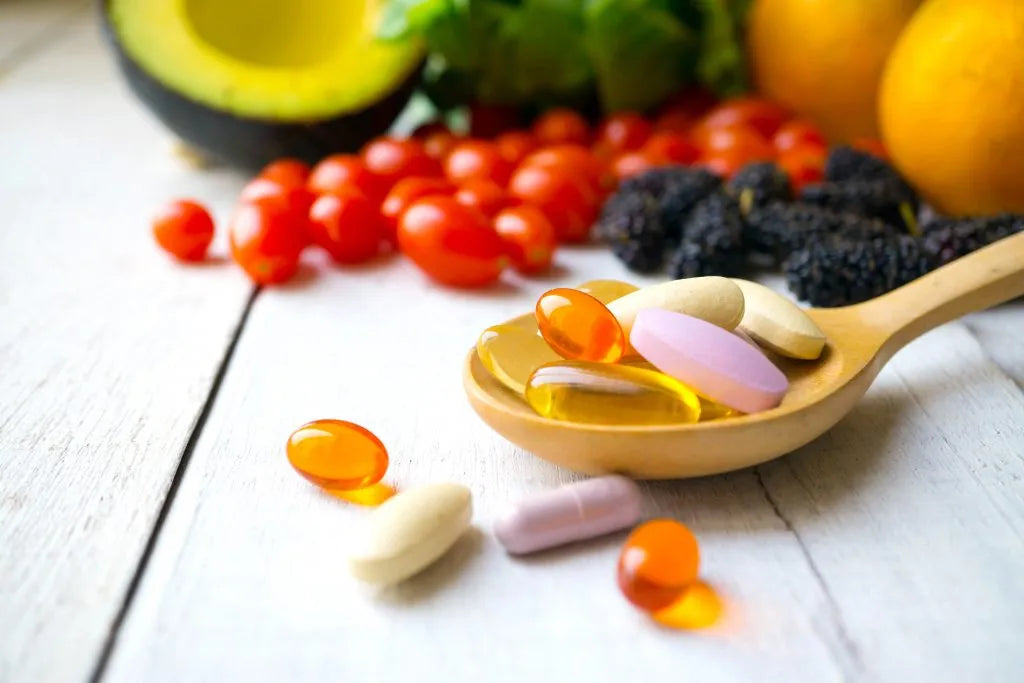
Vitamins for skin that you can't miss during menopause
Vitamin A
This is one of the vitamins for skin you must have during menopause. It contributes to the maintenance of mucous membranes and the skin. It also contains beta-carotene, an antioxidant that can help delay the appearance of the signs of ageing. Deficiency of this vitamin results in a dry and flaky appearance (García, n.d.).
Vitamin B
All group B vitamins are necessary for the body's processes, especially during the menopause. It helps transform food into energy. In addition, it influences the health of the nervous system, metabolism, strengthening muscles, hair loss and skin; especially in the tone and appearance of it, as it influences the regeneration of the same. It can help reduce inflammation, dryness, and loss of skin elasticity (Tricity, n.d.).
Another one among all the vitamins for skin: Vitamin C
Another vitamin you can't miss during menopause, because of all the benefits it provides, is vitamin C. For example, it helps keeping the skin hydrated, as well as giving it a glow, reducing redness and hyperpigmentation. It can also help reduce the appearance of dark circles under the eyes and promotes collagen production; it helps prevent sagging, protect against sun damage, and improve wound healing (Doyle, 2021).
Vitamin D
Among all the vitamins for skin, vitamin D is unique because it works more like a hormone than a vitamin itself. The benefits of ingesting it are the prevention of diseases and conditions that are more common as we age, such as osteoporosis and heart disease. Vitamin D can help absorb calcium, strengthen the bones, and prevent various types of cancer, including skin cancer. In other words, vitamin D helps maintain the skin healthy (Bracy, 2021).
Vitamin E
Vitamin E acts as an antioxidant, which helps protect the cells from damage on the skin and throughout the body. It helps create a natural barrier that keeps the skin moisturised and prevents it from drying out. It also protects the body's cells against free radicals. It is important to take it during menopause because it naturally decreases over the years (Cleveland Clinic, 2020).
Vitamins for skin: Vitamin K
K is another must-have during the menopause. It is essential for helping the blood clotting process, which helps heal wounds and bruises. It can also help control stretch marks, spider veins, scars, age spots and dark circles under the eyes (Bowman, 2020). Vitamins are essential for the whole body and should be consumed at every stage of life. They are needed for normal growth and development. They are best obtained and consumed by maintaining a balanced diet with a variety of foods such as vegetables and fruits. Besides, they can also be obtained from supplements and daily multivitamins; however, if you are going to opt for this option it is best to consult your GP first (MedlinePlus, 2021).
References:
- Bowman, J. (2020). The 4 best vitamins for your skin. Healthline. Recovered from: https://www.healthline.com/health/4-best-vitamins-for-skin#vitamin-k
- Bracy, K. (2021). Benefits of vitamin D for Women in menopause. Verywell Health. Recovered from: https://www.verywellhealth.com/vitamin-d-your-prevention-ally-2322660 Cleveland Clinic. Vitamin E for skin: What does it do?. Cleveland Clinic. Recovered from: https://health.clevelandclinic.org/vitamin-e-for-skin-health/
- Doyle, A. (2021). 11 reasons to add vitamin C serum to your skin care routine. Healthline. Recovered from: https://www.healthline.com/health/beauty-skin-care/vitamin-c-serum-benefits#benefits
- García, I. (s.f.). Vitamina A y menopausia. Instituto de la Menopausia. Recovered from: https://www.institutodelamenopausia.com/divulgacion/consejos/alimentacion/vitamina-a-y-menopausia
- Jonhson, T. (2021). Slideshow: Better skin after 50. WebMD. Recovered from: https://www.webmd.com/menopause/ss/slideshow-better-skin-after-menopause
- Henríquez, K. (2020). 8 consejos para cuidar la piel en la menopausia. Mejor con Salud. Recovered from: https://mejorconsalud.as.com/8-consejos-cuidar-la-piel-la-menopausia/
- MedlinePlus. (2021). Vitaminas. MedlinePlus. Biblioteca Nacional de Medicina. Recuperado de: https://medlineplus.gov/spanish/vitamins.html
- NIH. (2017). El cuidado de la piel y el envejecimiento. National Institute on Aging. U.S. Department of Health & Human Services. Recovered from: https://www.nia.nih.gov/espanol/cuidado-piel-envejecimiento Tricity. (s.f.). B vitamins: Your secret to good skin health.
- Tri-City Medical Center. Recovered from: https://www.tricitymed.org/2018/08/b-vitamins-secret-good-skin-health/
You May Also Like

JOIN US AND GET 10% OFF
Sign up to our newsletter to access free resources, advice and support.



